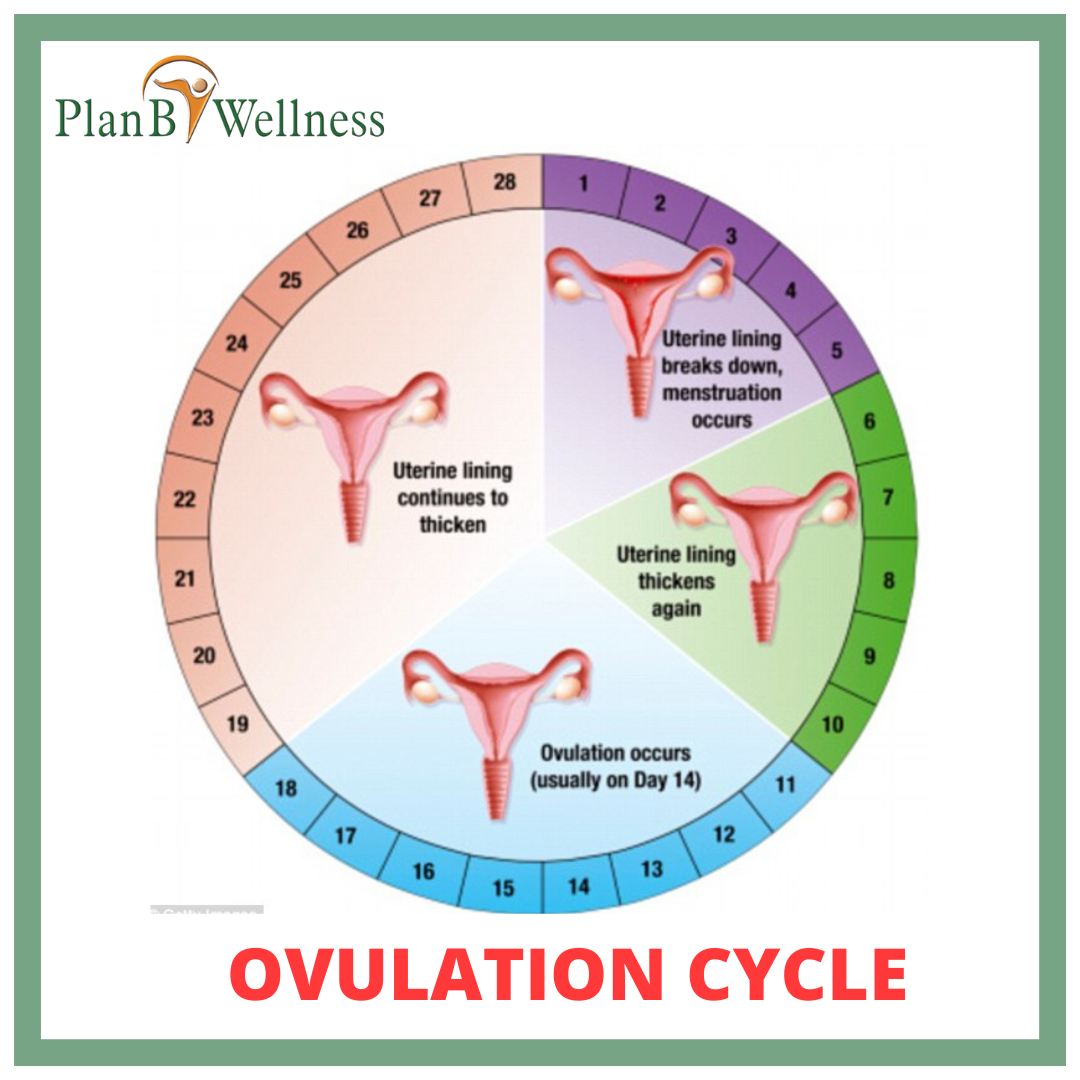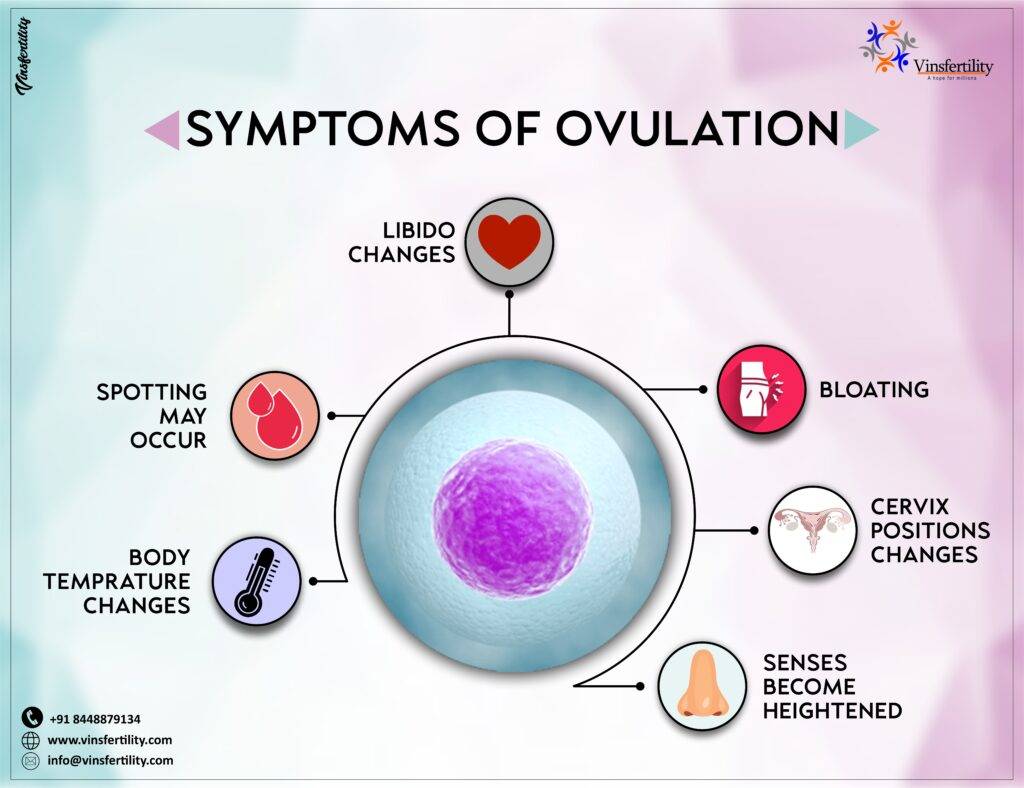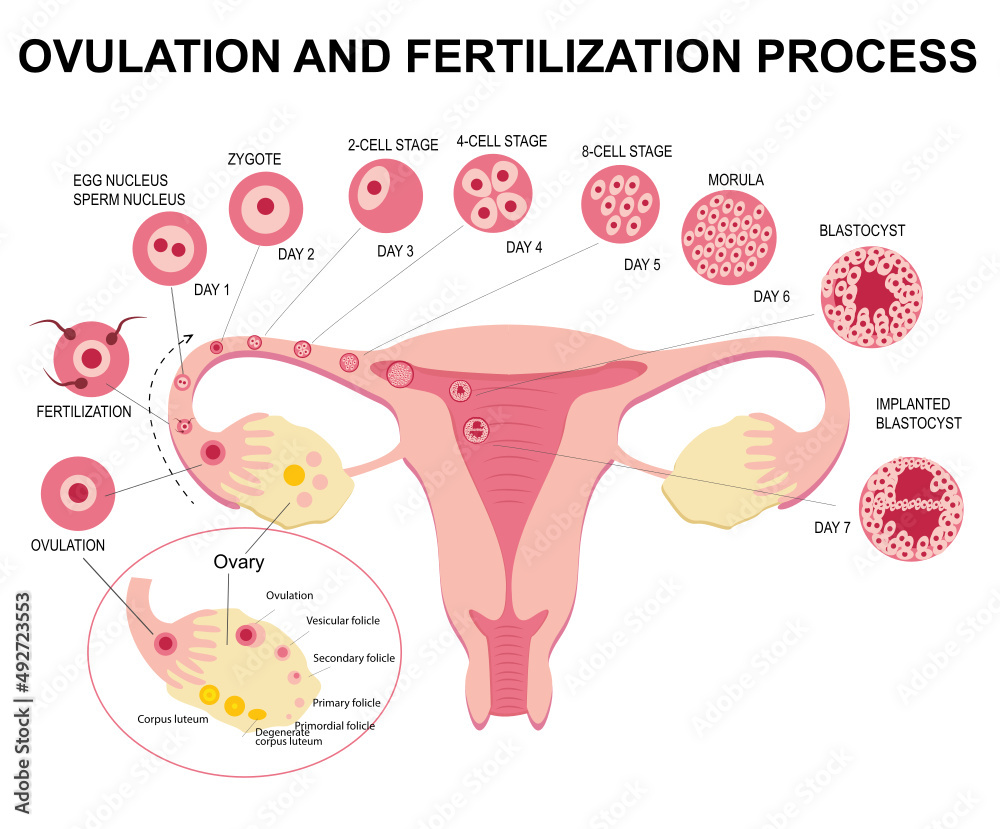Many people hoping to welcome a little one often wonder about the best ways to understand their body's unique rhythm. It's a natural desire to feel connected to what's happening inside, especially when you're looking to expand your family. Getting to know the subtle cues your body sends can feel like learning a new language, yet it's truly helpful for planning.
Some individuals, too it's almost, might notice different sorts of body changes, including perhaps a slight color in discharge, around the time their body prepares for a possible pregnancy. While these observations can be a part of the bigger picture, focusing on the main events happening with your reproductive system provides a clearer path for those trying to conceive. You know, paying attention to all the little signals can make a big difference.
This piece will explore the well-known signs of ovulation, drawing from what we understand about the process itself. We'll look at how your body releases an egg, how long that egg is ready for, and some good ways to time things to boost your chances. So, let's talk about what your body might be telling you, and how it all connects to your hopes of starting a family, that is.
- Is Nicole Wallace Married
- Magic Johnson Draft Year
- How Many Kids Does Nick Cannon Have 2024
- What Does Judge Jeanines Daughter Do
- Why Are The Police Called 12
Table of Contents
- Understanding Your Body's Ovulation Rhythm
- What Are the Main Signs of Ovulation for Pregnancy Planning?
- How Does Mittelschmerz Relate to Ovulation Brown Discharge?
- Timing Intimacy for Conception and Ovulation Brown Discharge
- When Is Ovulation Most Likely, and How Does It Affect Ovulation Brown Discharge?
- What If Ovulation Is Unpredictable, Considering Ovulation Brown Discharge?
- When Might Professional Help Be Needed for Fertility Concerns?
- Other Factors Affecting Fertility and Ovulation Brown Discharge
Understanding Your Body's Ovulation Rhythm
The core of getting pregnant really comes down to a process called ovulation. This is when one of your ovaries lets go of an egg. It's a pretty big moment in your monthly cycle, actually, because without an egg, pregnancy can't happen. The egg then makes its way, waiting for a sperm to meet it. It's quite a precise dance your body performs each month.
Once that egg is out, it doesn't stick around for very long. It's ready to be fertilized for only about twelve to twenty-four hours. So, you see, that window of opportunity is quite small, which is why figuring out when this event happens is so important for those trying to have a baby. Knowing this specific time frame can really help with planning, you know.
To give sperm a good chance of meeting the egg, it's a good idea to have sexual relations regularly starting a few days before ovulation and continuing until a day after. This gives the sperm time to be present and waiting when the egg makes its appearance. Basically, you want to make sure the "meeting" can happen at the right moment, that is.
What Are the Main Signs of Ovulation for Pregnancy Planning?
For those hoping to conceive, keeping an eye out for certain signals from your body can be very helpful. While some individuals might notice very subtle changes, perhaps a particular kind of discharge, focusing on the more commonly discussed body signals can give you a clearer picture of your fertile window. It’s like your body has its own special way of sending messages, you know.
One common sign many women experience is something called "mittelschmerz," which is a German word that means "middle pain." This discomfort typically shows up midway through your menstrual cycle, often around the fourteenth day. It's a sign that your body is right in the thick of things, preparing for or undergoing ovulation. It's a physical sensation that can be a real clue, in a way.
Another thing to pay attention to is how your cycle usually runs. While the average cycle length is around twenty-eight days, with ovulation often happening about fourteen days before your next period begins, everyone is a little different. Your cycle length can change from one person to another, and even for the same person, the timing between ovulation and the next period can vary month to month. So, it's not always a perfectly predictable schedule, that.
How Does Mittelschmerz Relate to Ovulation Brown Discharge?
Mittelschmerz, that middle-of-the-cycle pain, is a direct signal from your body that an egg release is happening or about to happen. It's often described as a dull ache or a sharp twinge on one side of your lower belly. This sensation, you see, is a physical indicator of the internal workings of your reproductive system. It’s one of those clear signs that your body is getting ready for a possible pregnancy.
When we talk about the many ways your body signals its fertile time, any physical sensation or observation, like a particular kind of discharge, is part of a broader set of clues. While the provided information doesn't detail a direct link between mittelschmerz and something like ovulation brown discharge, both are considered body signals that some people notice around the time of egg release. It's all about tuning into your body's unique language, basically.
So, if you feel that middle pain, it's a strong hint that ovulation is near. And for some, this might coincide with other subtle body changes they observe, like a slight spotting or an unusual color in their discharge. It's all part of the body's story during its fertile phase, you know, and paying attention to these signals can be quite informative.
Timing Intimacy for Conception and Ovulation Brown Discharge
Knowing when you ovulate is a big piece of the puzzle when you're trying to get pregnant. It's not just about having sex on the day of ovulation itself; it’s actually more effective to start a few days beforehand. This gives sperm a head start, so they're already waiting when the egg is released. In other words, you're setting the stage for a successful meeting, in a way.
The best advice is to have sexual relations regularly from about three to four days before you expect ovulation to happen, and then continue for one day after. This window provides the best chance for the sperm to be present and active when the egg becomes available for fertilization. It's like having a team ready and waiting for the big moment, you know.
Paying attention to your body's signs, including anything like ovulation brown discharge, can help you get a better feel for your timing. While the discharge itself isn't the primary indicator for everyone, for some, it might be another piece of the puzzle that helps them understand their unique cycle. It's all about collecting as much information as you can about your own body, so you can make informed choices, that is.
When Is Ovulation Most Likely, and How Does It Affect Ovulation Brown Discharge?
For a menstrual cycle that averages around twenty-eight days, ovulation typically occurs about fourteen days before your next period is set to begin. However, it’s really important to remember that every woman's cycle length can be different. What's more, the time between when you ovulate and when your next period starts can even vary from one month to the next for the same person. So, it's not always a perfectly fixed schedule, you see.
Because there's so much natural variation in cycles, predicting the exact day of ovulation can sometimes be a bit of a guessing game. This variability means that other body signals you might observe, including something like ovulation brown discharge, could also show up at slightly different times each month. It's all part of the natural rhythm that changes a little here and there, apparently.
To get a clearer picture of when ovulation might be happening, sometimes a blood test for progesterone can be helpful. Progesterone levels go up after ovulation, so checking these levels can confirm that an egg has been released. This is a more direct way to confirm ovulation than relying on subtle visual cues alone, though all information can be useful, of course.
What If Ovulation Is Unpredictable, Considering Ovulation Brown Discharge?
Sometimes, ovulation can become less predictable. When this happens, you might notice that the length of time between your periods changes; they could be longer or shorter than usual. Your period flow itself might also vary, becoming lighter or heavier, and sometimes you might even skip a period altogether. These changes can make it harder to pinpoint when you're most likely to conceive, you know.
When ovulation is less regular, it can make it trickier to spot those subtle body signals that many people rely on. This might mean that if you usually look for things like ovulation brown discharge as a sign, it might not appear as predictably, or at all, during these irregular cycles. It’s just another challenge that comes with an unpredictable cycle, that is.
An unpredictable cycle can make the whole process of trying to get pregnant feel a bit more uncertain. It means that the usual methods of tracking, like counting days or looking for specific discharge, might not be as reliable. In these situations, keeping a very detailed record of your cycle, even its irregularities, can be a useful first step, in a way.
When Might Professional Help Be Needed for Fertility Concerns?
If you and your partner have been trying to get pregnant by having sexual relations without any birth control for at least one year, and still haven't had success, that's generally when fertility specialists consider it a case of infertility. This doesn't mean there's no hope, just that it might be time to look into things a little more closely. It's a common situation for many couples, actually.
There are also situations where medical help becomes important, like with something called Ovarian Hyperstimulation Syndrome, or OHSS. This can happen after using certain injectable medications that are meant to help stimulate ovulation. Symptoms often start within a week of using these medications, though sometimes they might take up to two weeks to show up. It's something to be aware of if you're undergoing such treatments, you know.
Seeking advice from medical professionals can offer clarity and support. They can run tests, offer different approaches, and help you understand what might be happening with your body. It’s about getting the right kind of support to help you on your path to becoming a parent, that is.
Other Factors Affecting Fertility and Ovulation Brown Discharge
Female fertility simply means being able to get pregnant. It's a complex process, and many things can influence it. Beyond just knowing when you ovulate, there are other aspects of your reproductive health that play a part. Understanding your overall fertility picture, including any observations like ovulation brown discharge, helps paint a more complete picture of your body's readiness.
For example, many women have ovarian cysts at some point in their lives. Most of these cysts are harmless and don't cause any trouble. However, some types of cysts can lead to serious symptoms. It’s important to know what symptoms to watch for, so you can talk to a healthcare provider if something feels off. These are typically separate from the day-to-day signs of ovulation, but they are part of overall reproductive health, you see.
Ultimately, keeping track of your body's patterns and being aware of any changes, whether it's cycle length, pain, or even things like ovulation brown discharge, can help you feel more in tune with your reproductive health. If you have concerns, or if things just don't seem to add up, reaching out to a medical professional is always a good step to take. They can help you sort through what your body is telling you, basically.
This article has covered the basic process of ovulation, including how an egg is released and how long it can be fertilized. We talked about timing intimacy to improve chances of conception and explored signs like mittelschmerz. We also touched on cycle variations and when professional help might be considered for fertility concerns, along with other factors like ovarian cysts
Related Resources:



Detail Author:
- Name : Creola Bernhard
- Username : dschaden
- Email : maudie87@yahoo.com
- Birthdate : 1988-03-05
- Address : 32661 Enid Parkway Suite 671 South Tomas, KS 67659-9748
- Phone : (313) 291-8565
- Company : Sipes, Anderson and Auer
- Job : Human Resources Specialist
- Bio : Et tempore et rerum. Sed nostrum et molestiae eum eum. Est omnis totam corporis eos consequatur. Ipsam eligendi quia corrupti. Aut molestiae placeat iste cumque enim asperiores quod.
Socials
instagram:
- url : https://instagram.com/marlee.hartmann
- username : marlee.hartmann
- bio : Dolor molestiae doloremque magni asperiores ad soluta. Id id rerum quod dicta fugit.
- followers : 4717
- following : 1461
tiktok:
- url : https://tiktok.com/@hartmannm
- username : hartmannm
- bio : Eligendi ut iusto aut laboriosam labore quam est. In qui voluptatem dolorem.
- followers : 5575
- following : 1273
facebook:
- url : https://facebook.com/marlee_hartmann
- username : marlee_hartmann
- bio : Quis labore rerum porro nesciunt et est. Dolorem eaque aliquam adipisci vel et.
- followers : 3178
- following : 1680
linkedin:
- url : https://linkedin.com/in/marleehartmann
- username : marleehartmann
- bio : Beatae asperiores et aut facere.
- followers : 430
- following : 638